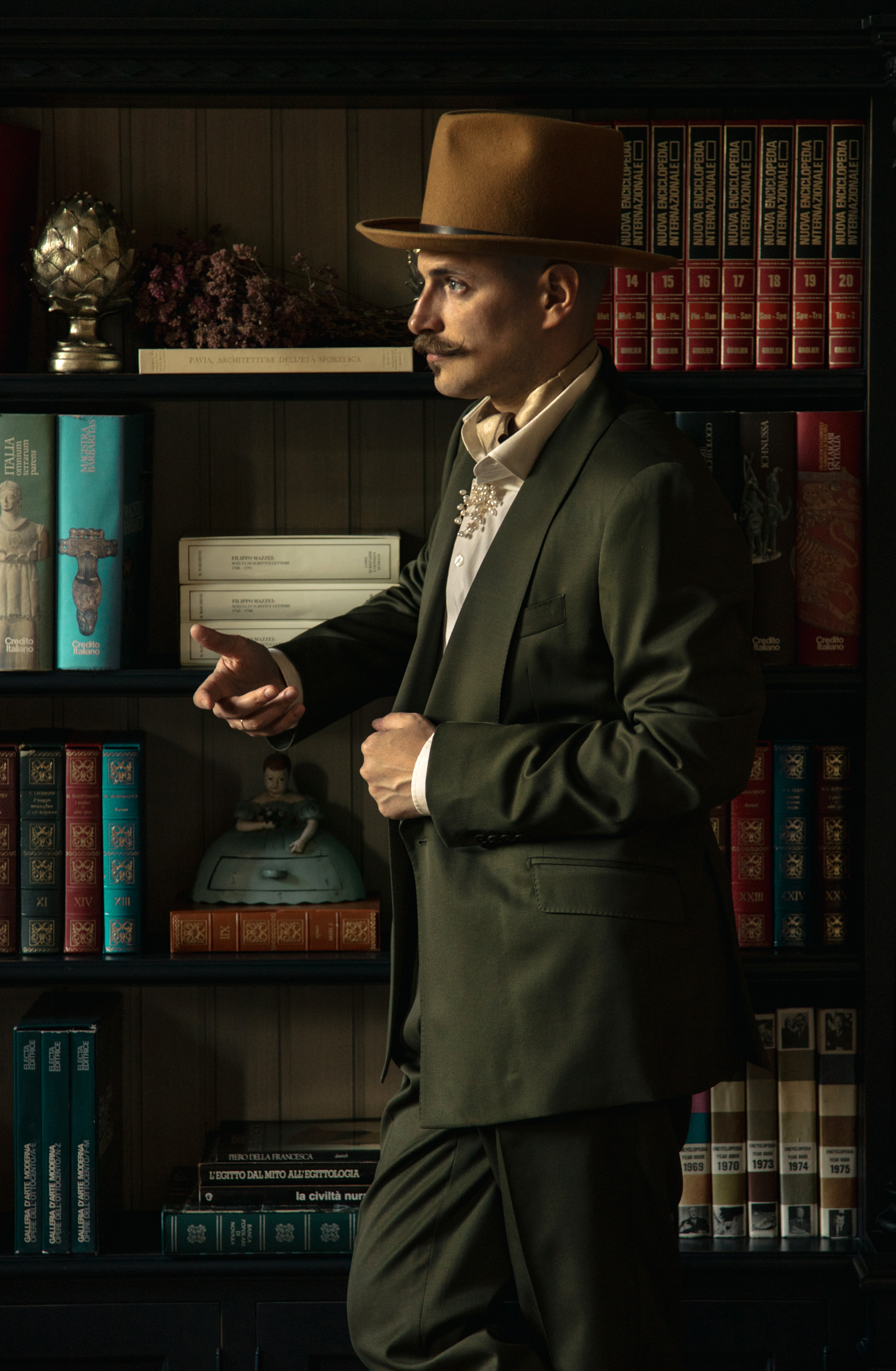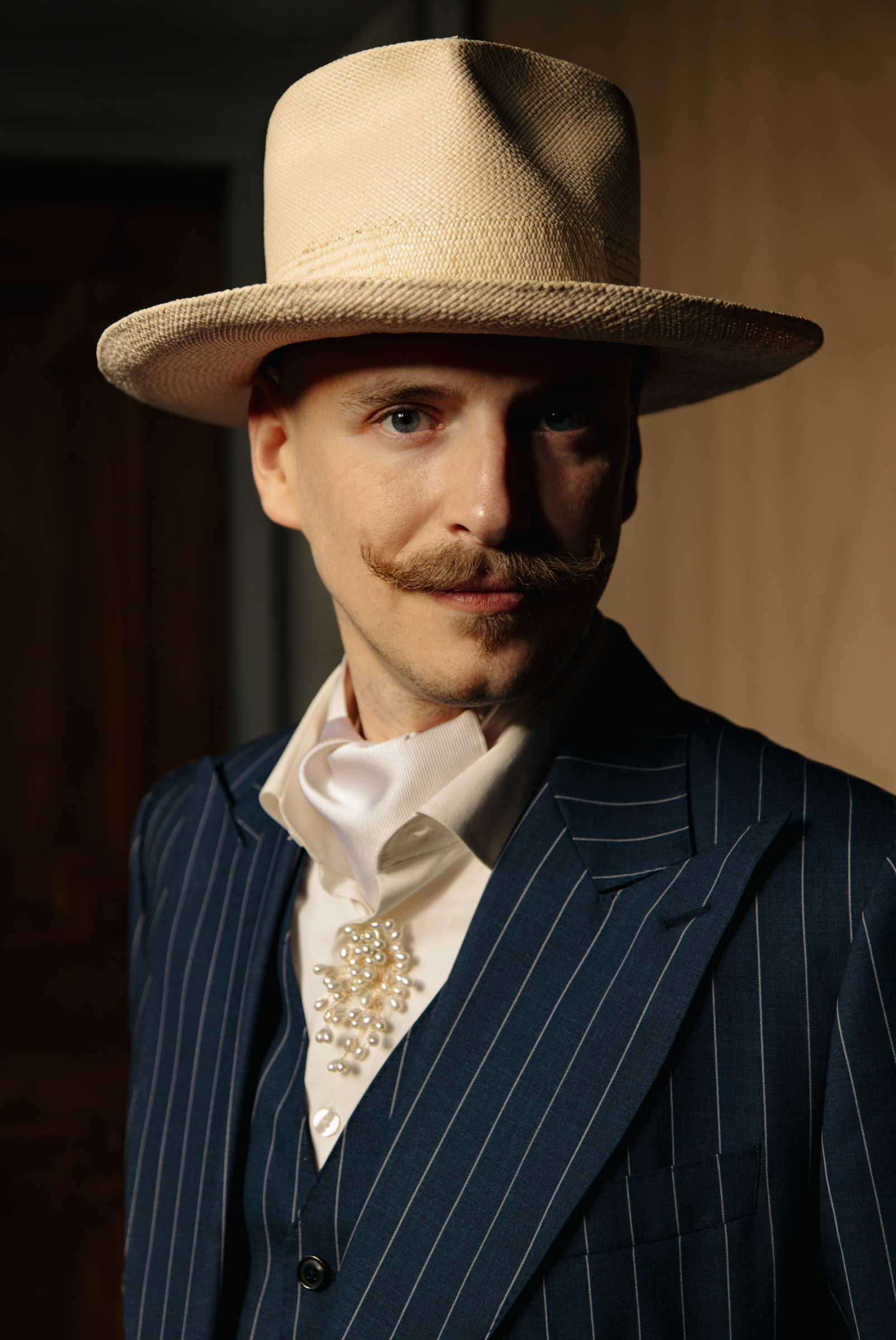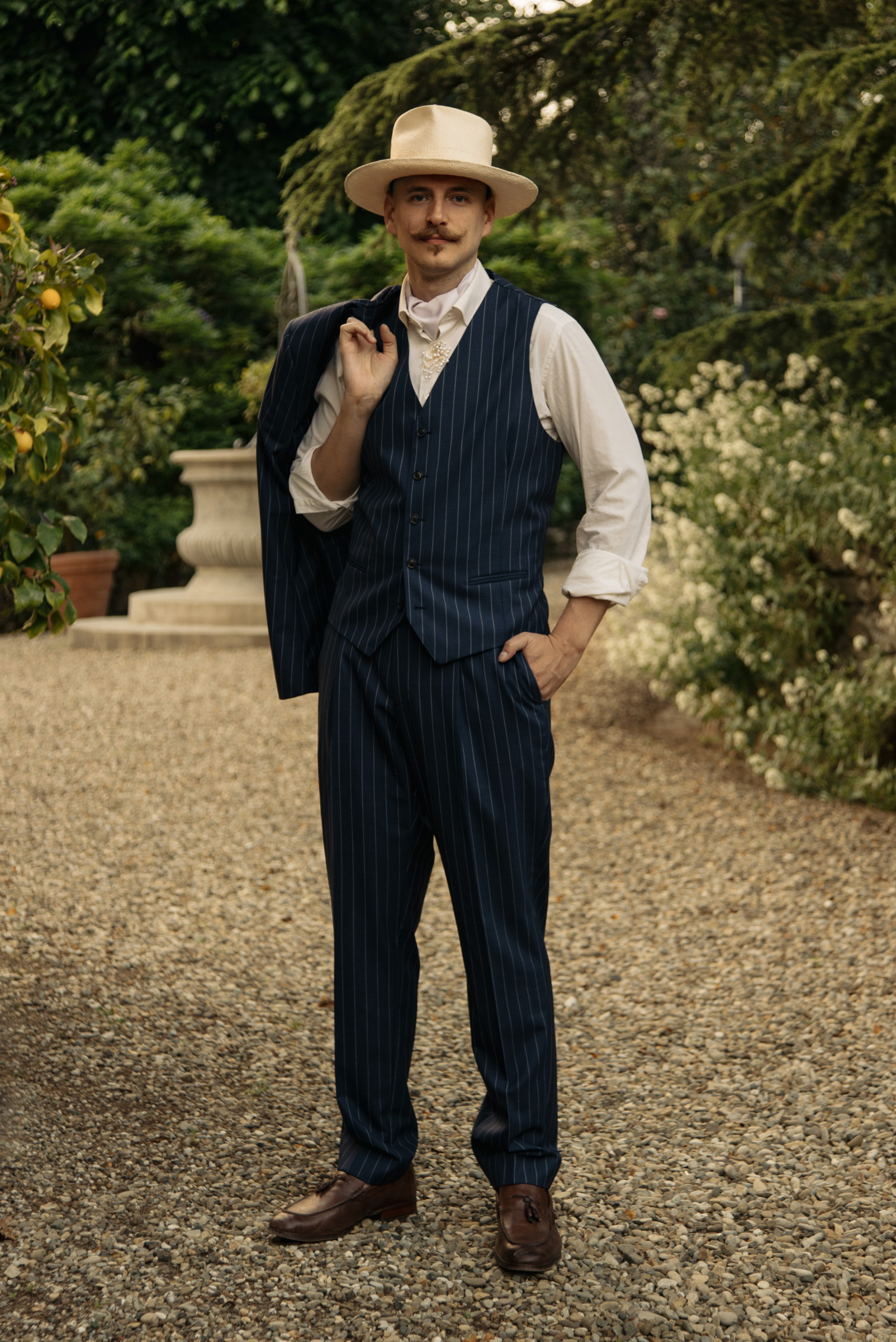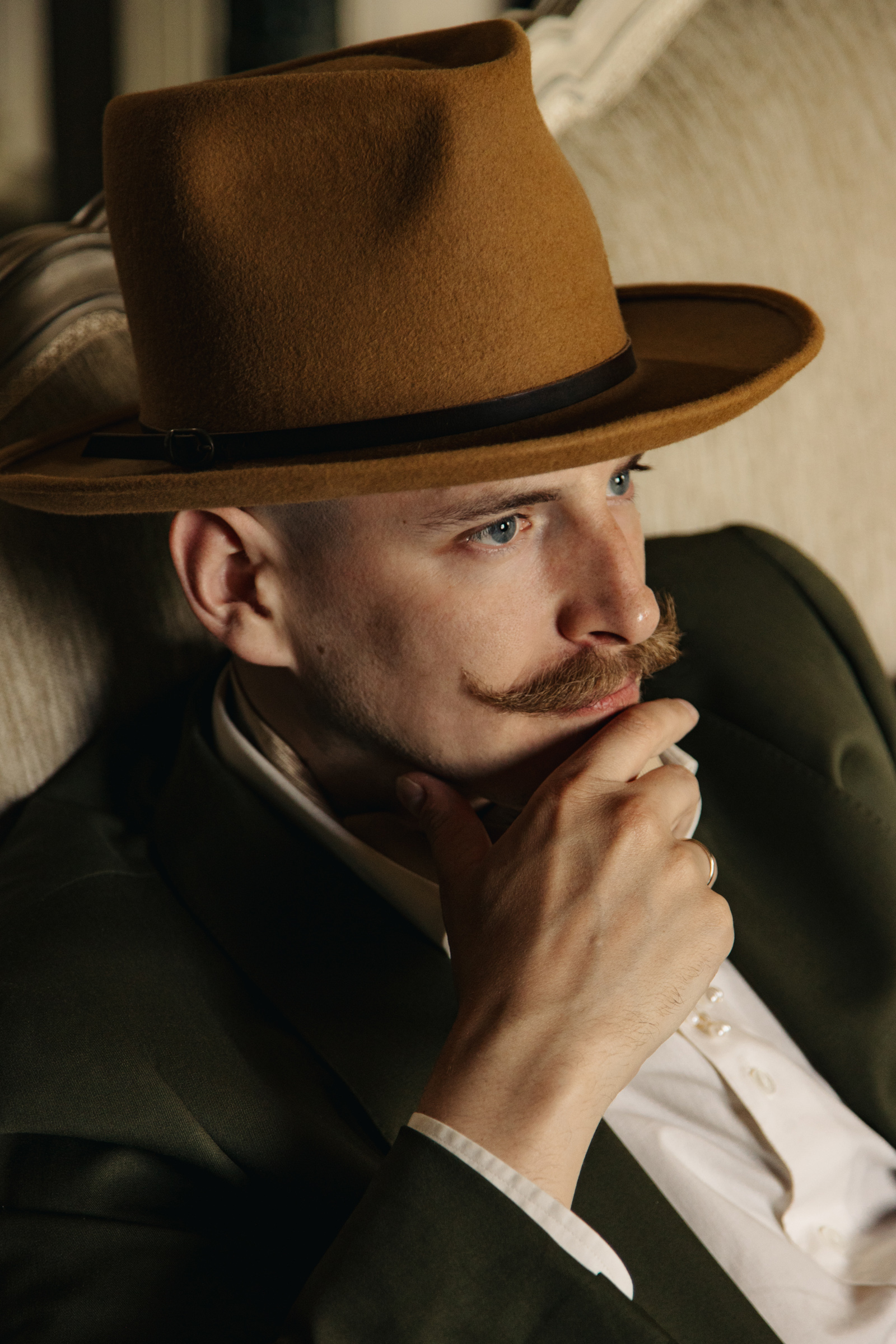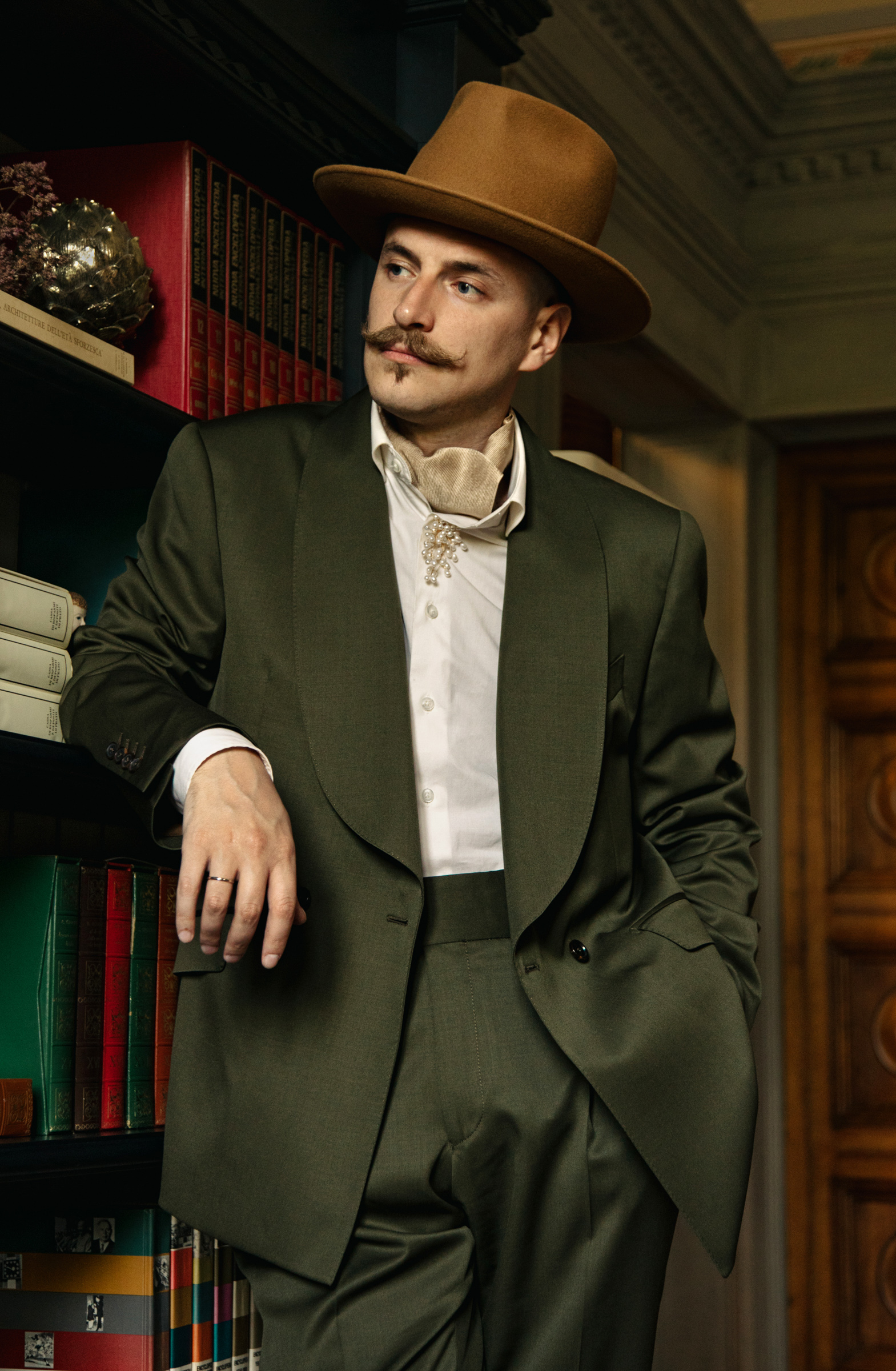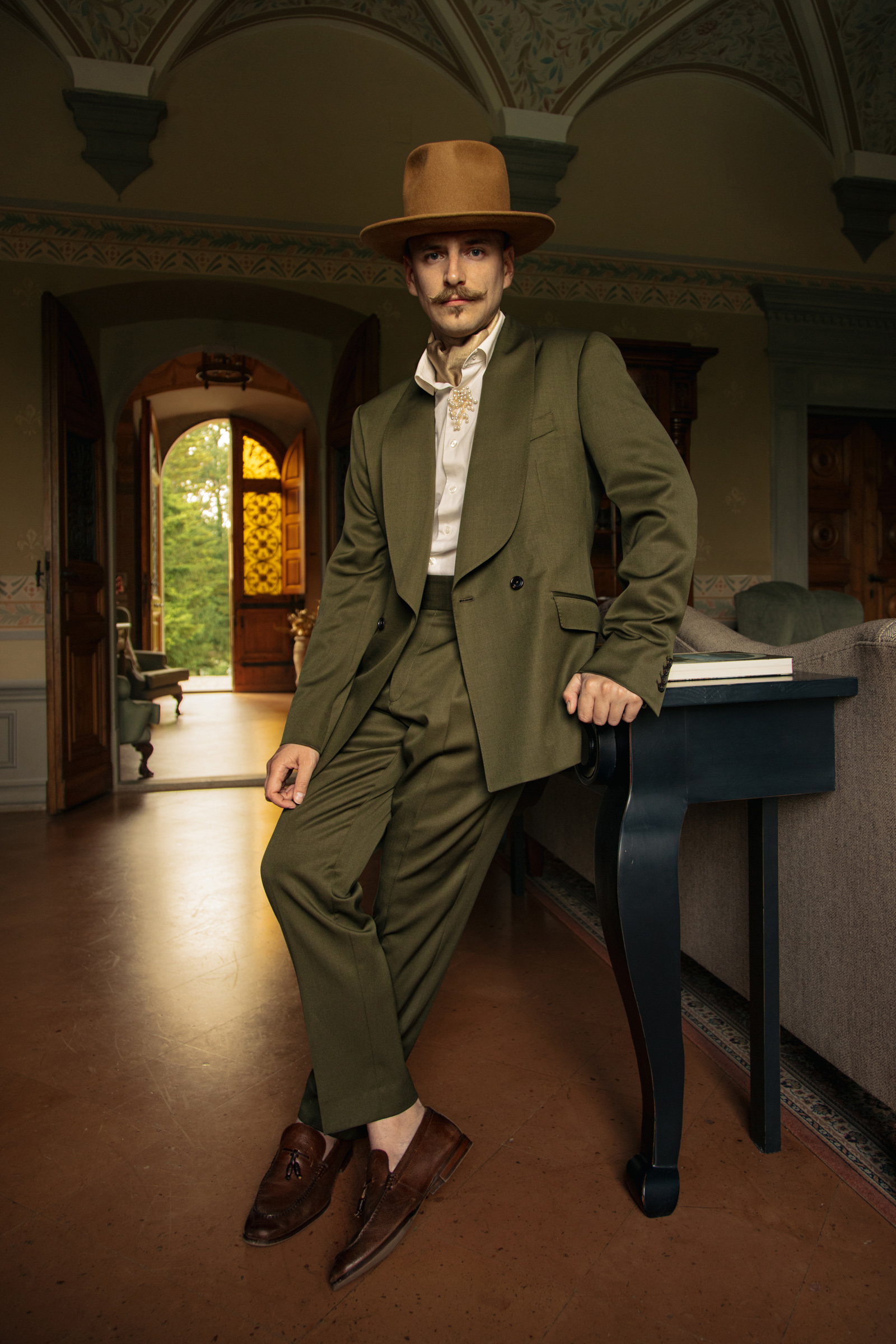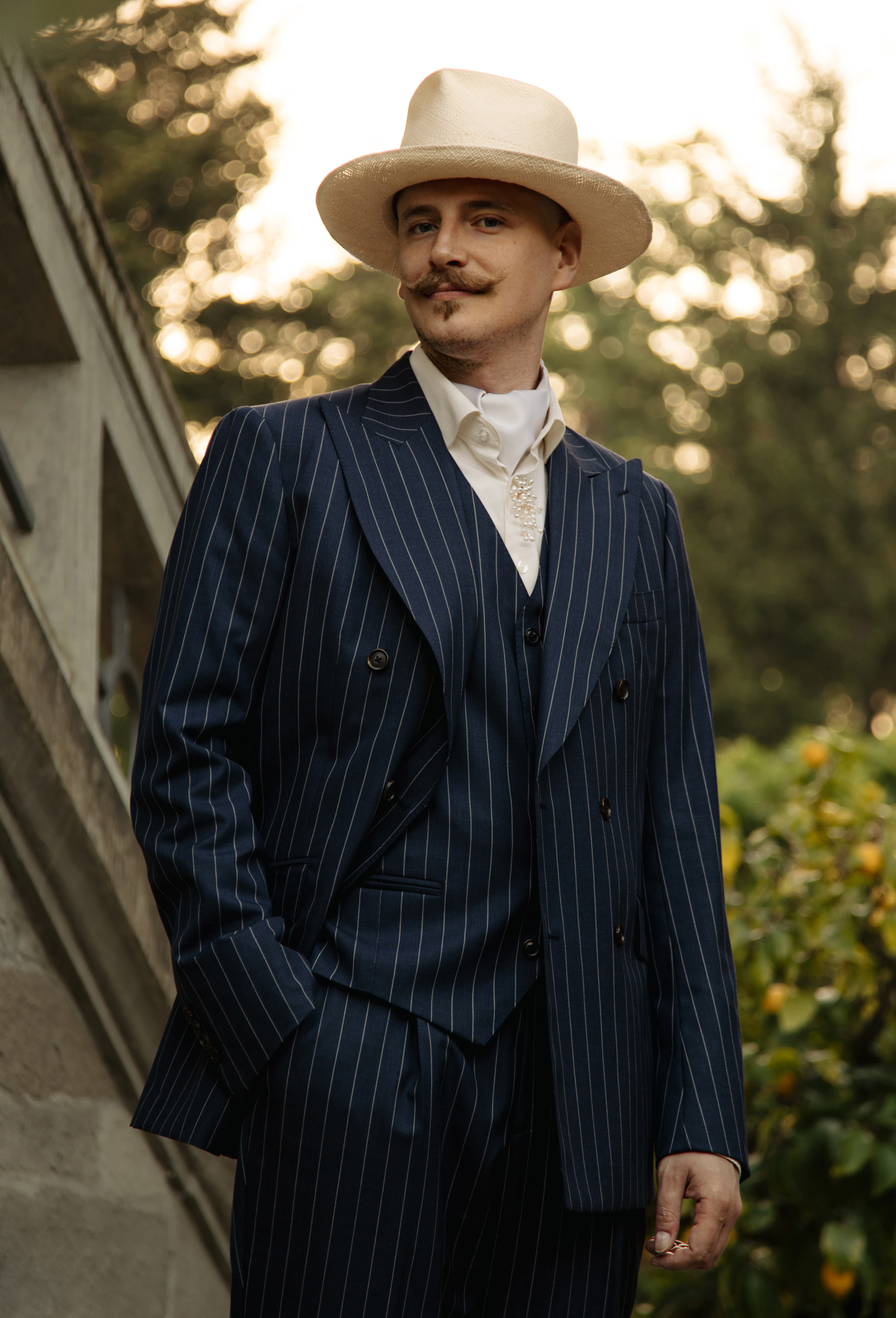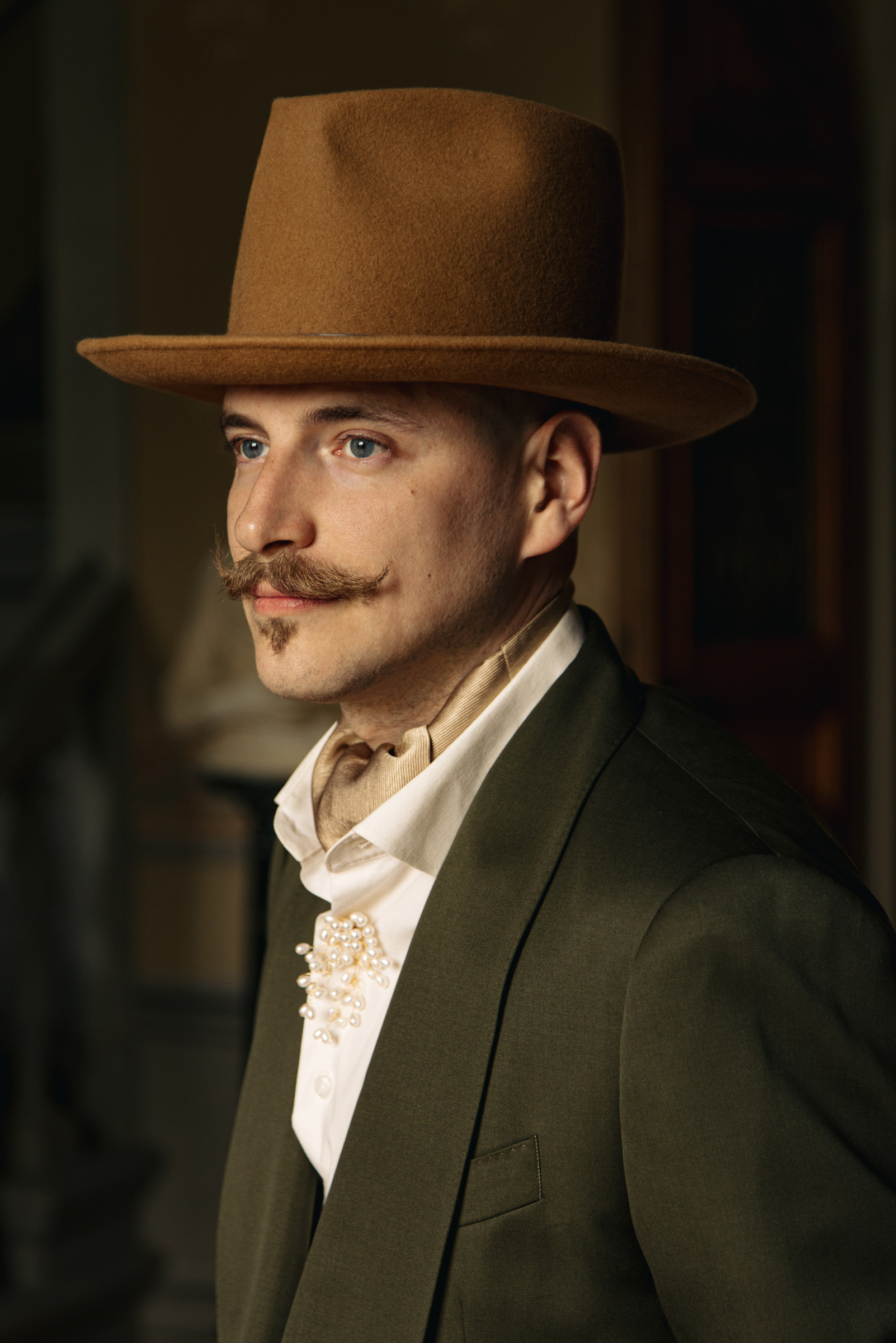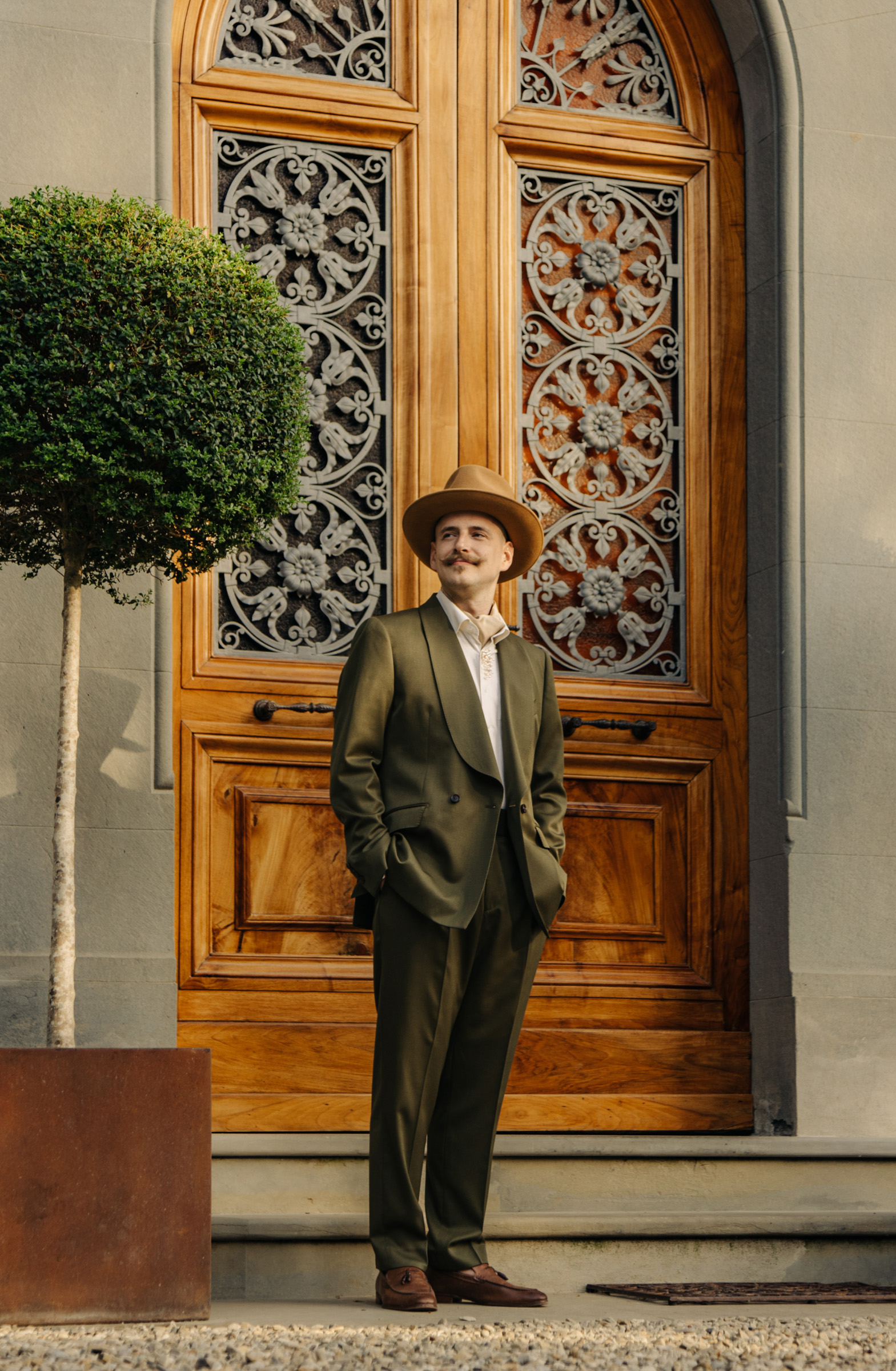History’s Hidden Treasures with Alexander Dementyev
We met in the haven of elegance – Villa la Commenda Concordia – neighbors from lands separated by arbitrary lines drawn on maps by men we’d never met. It felt like a scene plucked from the pages of Remarque’s novels, a moment suspended in time amidst a world in turmoil. Our nations have danced a complex waltz of conflict for centuries. Yet, amidst the scent of lemon blossoms drifting on the breeze and the soft clink of fine china, we found a common language—one of shared kindness and curiosity.
Alexander Dementyev, the historian, sat across from us, his eyes reflecting a wisdom born from studying the story of humanity. As night fell, we listened to Dementyev speak of history not as a dead thing trapped in dusty tomes but as a living, breathing entity. His words painted pictures of a past that shifted like sand dunes in the desert wind, never fixed, constantly evolving with each new perspective. We found not just knowledge but a mirror reflecting the complex, often contradictory nature of human experience – in times of war and peace and in those rare, precious moments of understanding that transcend both.
1. Alexander, thank you for agreeing to have this conversation with us and trusting us to capture your image in time. History is one of my favorite subjects, and learning your perspectives is a pleasure. Is there any commonly held belief about history that you think is entirely wrong?
Very often, in dialogues with entirely different people, I find the opinion that someone sinister is intentionally rewriting history, hiding something important, or that “in reality,” everything was completely different. It’s a big mistake to perceive history as a single narrative, a kind of sacred scripture. I am convinced that history is a feeling, but with a valuable set of methods. And each time, we need to speak about the past in a new way. As a historian and professional, I feel obligated to find new words and suitable formulations, reinvent the metaphors every time, and consider with whom I am talking and in what context. And, of course, history is both craftsmanship, curiosity, and therapy, and for me, it’s a whole world that never gets you bored.
2. Well, history is written by the winners, as they say. Which lesser-known historical event do you believe had a significant impact on the world?
The world consists of events that change it. That’s the point. The world and its past are not static facts or theatrical actions in a vacuum. It’s constant dynamics. Every moment, things happen that change the world. But when we build a narrative, we look at the canvas of events as a play. And here, all the laws of dramaturgy work.
More specifically, I am constantly surprised by certain things from the past. All creation that surrounds us has influenced the world. I am often curious to look at phenomena that make up my daily life and see it through time. My communications, movements, and the geography of moving things around me are the subjects of my constant admiration. The milestones that made them what they are are the important historical events that changed our world and often go unnoticed. From the creation of language, the invention of wheeled transport, and the domestication of electricity to the emergence of email and touchscreens.
3. How do you think future historians will view our current era?
Each time in a new way and always in their own way. How could people of the so-called Stone Age imagine their era? Certainly not how my colleagues in the 19th century described it, for example, and not as depicted in the cartoon “The Flintstones.” And how did contemporaries of Leonardo da Vinci perceive their time? Surely not as a brilliant era of the Renaissance. Contemporaries saw wars, religious strife, and political redivision of entire regions, but we don’t hear the cannon roar of that time or the echoes of disputes of important dynasties. Now, somewhere, an inventor is working whose name we will not hear during our lifetime, but our entire era will be associated with his name for hundreds of years.
4. What historical figure is most misunderstood, and why?
Almost all figures are misunderstood. If a person and his activities encounter a circle of people beyond those close to him, he inevitably faces interpretations of his actions and motivations that do not match his logic. I like to look into the psychology of historical figures, but here, it is always important to understand that this is just a tool, and one must know the measure.
5. I couldn’t agree more. My own grandfather (Aadu Hint) was a celebrated author, and 35 years after his death, I continue to see people covering up reality with their interpretations, often borrowing from those who interpreted before them.
Can you share an instance where a piece of evidence or an artifact dramatically changed our understanding of a historical event?
Thanks to mass culture, we think of the Middle Ages as a time of constant prayer and reduced interest in the life and fun we are used to. Mainly because we have grand cathedrals and beautiful sacred books from the European Middle Ages. And an example of how everything can suddenly change was in 1952. Then, academician Artsekhovsky conducted excavations in Novgorod. There is a particular soil there in which organic materials are well preserved. And his expedition came across notes on birch bark dating back to the Middle Ages. Several thousand have been found now. But then it was the voice of ordinary people from the depths of centuries: they were children’s notebooks of a six-year-old boy who got tired of writing letters and started drawing himself on a horse, notes from a wife to her husband about what to buy, declarations of love, threats to return the money, and so on. This was a fundamental change in the perception of society. I am always impressed by the “humanization” in history, the appearance of a sensual human dimension, and the comical and tragic in everyday life.
6. Wow, this is so interesting! This is the first I’ve heard about this instance. What are your biggest challenges when interpreting historical events or figures?
I would identify two significant difficulties: the first is the lack of information, for example, insufficient sources on a particular topic, and the second is the general public’s bias on some issue, deeply ingrained in the culture, vulgar, biased, and peremptory perceptions of an era, region, person, event, or phenomenon.
7. If you could time travel to any historical period, which era would you visit and why?
In my childhood, I often dreamed of time travel. And I really wanted to visit both antiquity and less distant eras. There were many typical – I suppose – childhood regrets that I was born in the wrong era. But this spurred me to make life around me so interesting that there would be no regrets about living in some “wrong” time. I have already traveled to a historical era, the first half of the 21st century. And this is the most interesting of all the eras available to us. We have things with us that, throughout the history of humanity, were an unattainable dream for the most daring fantasists and bold inventors from the most developed and affluent societies of the past.
“I have already traveled to a historical era, the first half of the 21st century. And this is the most interesting of all the eras available to us. We have things with us that, throughout the history of humanity, were an unattainable dream for the most daring fantasists and bold inventors from the most developed and affluent societies of the past.”
– Alexander Dementyev
8. If you could have any historical figure over for dinner, who would it be, and what would you ask?
I interact with historical figures professionally through books, documents, and other sources. This communication with characters from the past is enough for me. For dinner, I would only invite my relatives and close friends.
9. What parallels do you see between past societies and today’s world?
The main parallel between past societies and today is that we are the same people. To paraphrase the classics, we still act of our own free will in circumstances we do not choose. That means that by trying to understand the circumstances, we can understand people of the past and, at the same time, learn more about ourselves and how we would act, feeling the responsibility for our actions now.
10. What would it be if you could bring back any fashion trend?
I really like mustaches. I have dreamed about having them since childhood, seeing them in old portraits but not in life, and I wear them with great pleasure.
11. Is there a book that changed your life?
There are quite a few such books; I was impressed by some for longer than others, and some I have forgotten altogether. But to be more specific, I recommend a book for beginners that once impressed me very much. This is Mark Ferro’s “How History is Told to Children in Different Countries.”
12. Three songs that sound like you? We love music recommendations!
It’s challenging to name three. My musical preferences change significantly depending on my mood: from the group Huun-Huur-Tu to Rammstein, Sami Yusuf, and Alfredo Zitarrosa. From classical music, I really enjoy Agustin Barrios Mangore (e.g., “The Bees” and “La Catedral”), Rachmaninov (2nd Сoncert for piano) and Brahms (3rd Symphony and Hungarian Dances No. 2 and No. 17).
13. I also adore throat singing, and Huun-Huur-Tu is also on my list, just like Brahms. What about advice? What is the best advice you’ve ever had?
There have also been quite a few of these. But the most important advice is always from my wife.
14. Of course! Could you point out anything in particular?
I may sound banal here. When you put it into words, the most important advice can seem quite simple and not particularly meaningful from the outside. Context and the significance of these words are essential.
The key advice for me was not to be afraid to do what I do, to choose my interests, and not to doubt them, even when I thought there might be reasons to. And without the support in the eyes of the person giving the advice, it wouldn’t have had the same strength.
15. Is there a message you’d like to give to the world?
History shows us, on the one hand, how fleeting life is and how fragile happiness can be. Yet, there is always room for happiness and love in any era and under any circumstances. The second important thing I share in my work is that we live in a world of someone’s dreams: everything around us, every little thing, was once inaccessible and desired by hundreds of generations of our ancestors. This makes me appreciate everything around me and rejoice not only for myself but also for all the generations who wanted the world to be like this.

